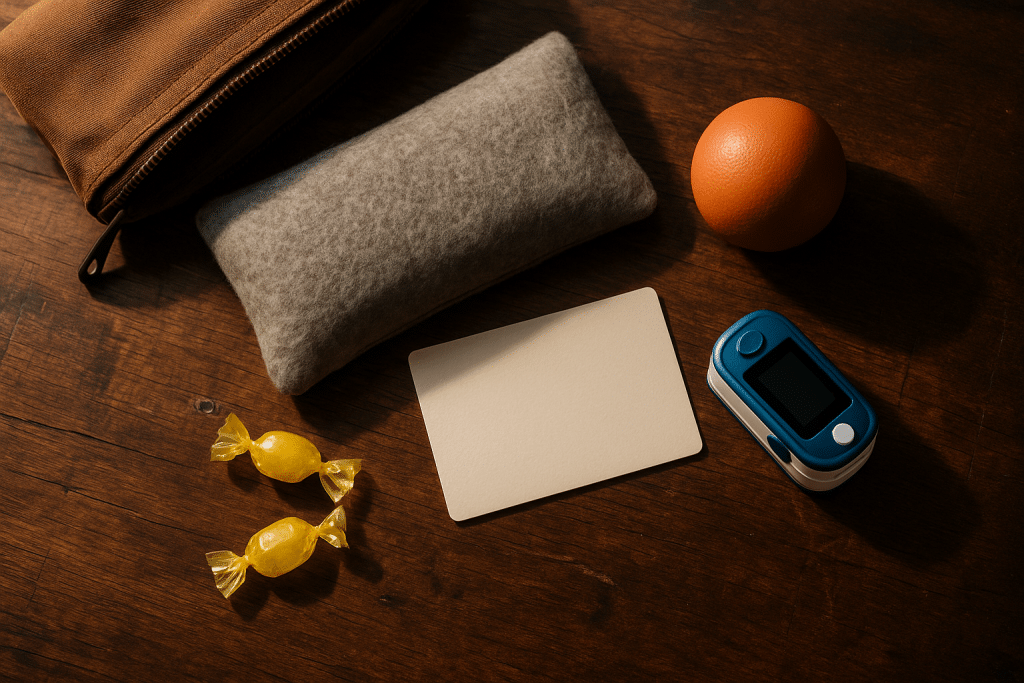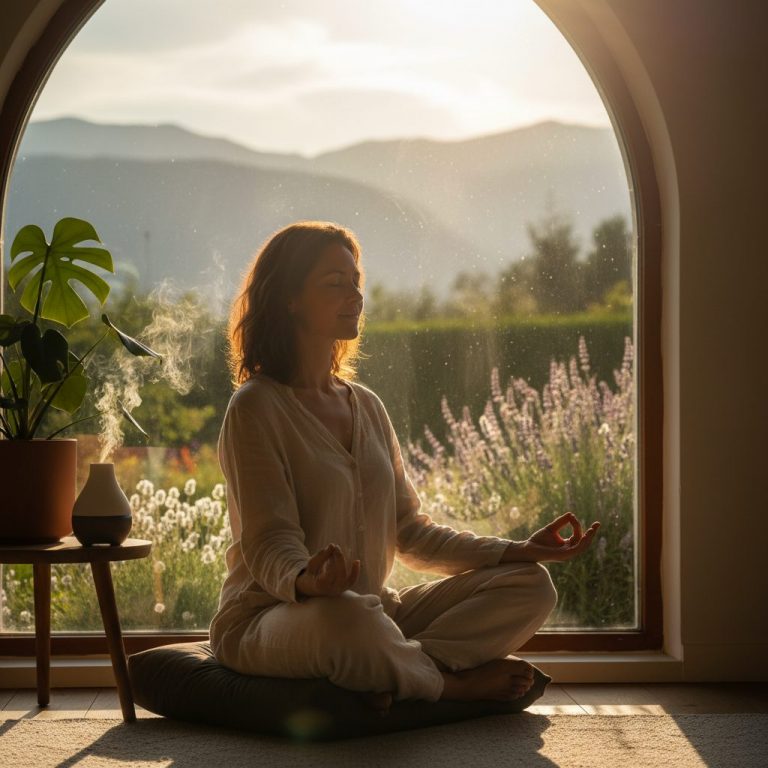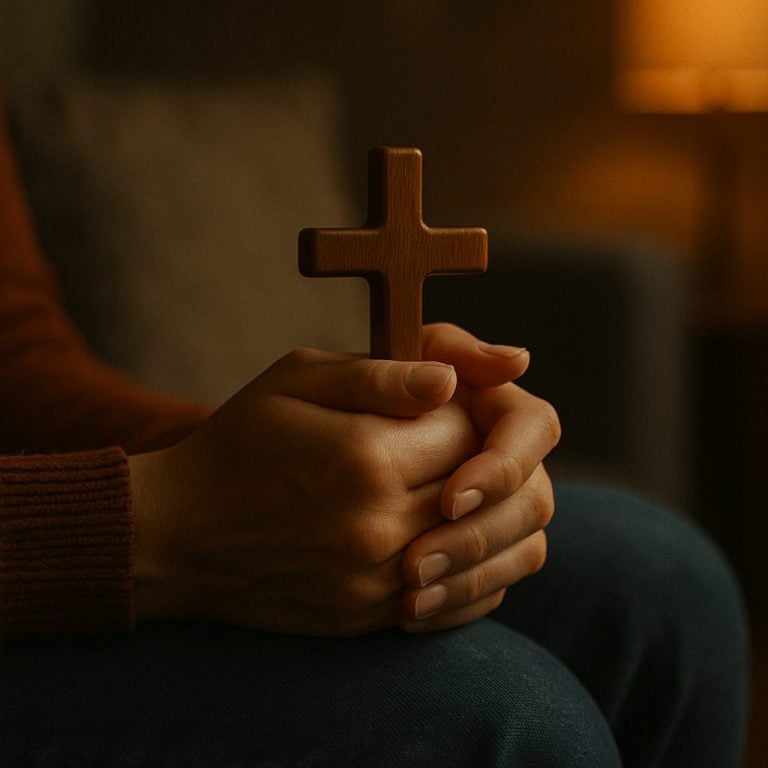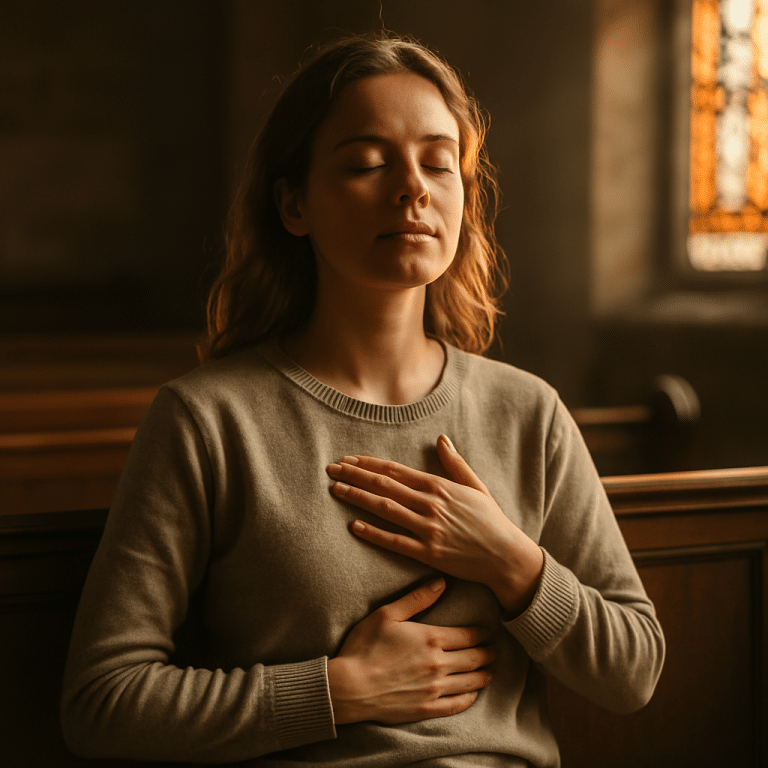How to Stop a Panic Attack Without Medication – 7 Faith and Science Steps
Estimated reading time: 7 minutes
Everyone who has endured a sudden wave of dread has googled how to stop a panic attack without medication. Your chest tightens. Your thoughts spin. You want a safe, rapid answer that avoids pills or emergency rooms. Christians also wrestle with anxiety. This guide marries neuroscience with Scripture so you can regain calm while deepening your trust in Christ.
Moreover, every strategy is evidence‑based, inclusive, and practical enough to use in the car, the office, or the pew. Transitioning from panic to peace is possible. Therefore, read on and equip yourself with tools that honour both brain science and biblical faith. Although medication can be a God‑given blessing when necessary, many people prefer to learn skills that restore control naturally.
Consequently, this article focuses on immediate actions you can take anywhere. It also covers long‑term routines that train your nervous system to stay calm. By the end you will know how to stop a panic attack without medication. You will also know how to live with steady joy day after day. Take a deep breath, invite the Holy Spirit to guide you, and let’s begin this journey toward peace together. The next few minutes of reading could transform your next few years of living, so stay present and hopeful.
Why Panic Attacks Happen
During a panic attack your amygdala yells “danger” even when no threat exists. Consequently, adrenaline floods your bloodstream, your heart races, and your breathing becomes shallow. Harvard Medical School reports that this false alarm usually peaks within ten minutes and rarely harms the heart. Meanwhile, Psalm 139 celebrates that we are “fearfully and wonderfully made,” which means our bodies attempt to protect us, not punish us.
However, the protective circuitry can misfire after prolonged stress, high caffeine intake, or unprocessed trauma. Moreover, perfectionistic thinking common among church servants can keep the system on high alert. Because bodily symptoms feel dangerous, many individuals flee the setting, reinforcing the fear loop. Therefore, understanding this biology is the first step in learning how to stop a panic attack without medication. When you practise grounded breathing (see our breathing‑exercise cornerstone guide) you activate the prefrontal cortex, which sends a calming signal down the vagus nerve. Recognising the pattern turns panic from a mysterious enemy into a predictable body event you can surf rather than sink under.

Immediate Steps: How to Stop a Panic Attack Without Medication
First, choose a simple breath pattern. Inhale through your nose for four counts, pause briefly, and exhale through your mouth for four counts while whispering a calming verse like “Peace, be still.” Furthermore, place one hand on your belly so you feel the diaphragm move; this tactile cue keeps attention outside racing thoughts. Next, engage the five‑senses grounding method: see five colours, touch four textures, hear three sounds, smell two scents, then taste one drink of water. Because this sequence forces sensory processing, the brain cannot catastrophise with the same intensity.
Moreover, gently tense and release muscle groups from toes to forehead. Progressive muscle relaxation sends signals that the threat has passed. Shift your gaze to a single object—the cross on a necklace or the grain of a wooden pew—and describe every detail aloud. Consequently, your language centres reactivate, pulling energy away from the emotional limbic circuit. If thoughts still spiral, repeat a brief truth statement: “This feeling is temporary; God is with me.” Additionally, a finger pulse oximeter or smartwatch can show your oxygen level is normal, dismantling health anxiety. Remain in place until the wave subsides so your brain learns escape is unnecessary. Practise daily to condition the nervous system and shorten future attacks.
Lifestyle Habits That Prevent Future Attacks
Long‑term freedom demands habits that lower your stress baseline. Therefore, schedule at least thirty minutes of moderate cardio, such as brisk walking or cycling, five days each week. Studies in the Journal of Anxiety Disorders show exercise can reduce generalised anxiety scores by twenty percent. Additionally, limit caffeine to one small cup before noon. Because stimulants elevate adrenaline, they prime your body for false alarms. Swap energy drinks for decaf green tea and high‑protein breakfasts, and bookmark our stress‑management cornerstone resource for extra ideas.
Moreover, guard your sleep. Create a wind‑down routine: dim lights an hour before bed, switch off social media, read a Psalm, and practise three minutes of diaphragmatic breathing. Restorative sleep restores cortisol rhythms and builds resilience. Nutrition also matters: include magnesium‑rich greens and B‑vitamin sources like eggs and legumes. Finally, plan weekly Sabbath rest, honouring rhythm rather than nonstop effort. Over time, these lifestyle decisions reinforce every technique above, making it easier to apply how to stop a panic attack without medication even in unexpected challenges.
Faith‑Based Practices to Calm a Panic Attack Naturally
Because faith and neurobiology intersect, you can harness spiritual disciplines to retrain anxious circuits. Begin each morning with a breath‑prayer session: inhale “Jesus,” exhale “I trust You.” Moreover, journal fears, then write a matching promise of God beside each; this mirrors cognitive restructuring and aligns with Romans 12:2. Hebrews 10:25 reminds believers to meet together, and psychologists confirm supportive relationships buffer stress hormones. Share your struggle during small group and celebrate small victories collectively.
Additionally, practise Christian mindfulness. During a quiet walk, notice the colour of the sky and thank God for each detail. Because worship regulates breathing, hum a hymn when tension rises. Memorise Isaiah 41:10, Philippians 4:6‑7, and Psalm 94:19 so Scripture flows naturally during stress. Over weeks, these disciplines weave peace into daily routine, ensuring the question how to stop a panic attack without medication is answered by an instinctive, Spirit‑led response. For deeper study, visit our Scripture‑for‑anxiety cornerstone page.
Helpful Tools and Products
Practical accessories reinforce the lessons above and keep relief close at hand.
- Pocket Scripture Card Set – Twenty durable cards with calming verses, perfect for quick grounding.
- Finger Pulse Oximeter – Seeing a normal oxygen level counters catastrophic breathing thoughts.
- Breath App – Free guided breathing and 5‑4‑3‑2‑1 prompts.
- Warheads Extreme Sour Candy – Intense flavour anchors your senses during dissociation.
- Five‑Pound Weighted Lap Pad – Gentle pressure activates deep‑touch receptors, fostering safety.
Additionally, consider wearable biofeedback devices that alert you when your heart rate spikes so you can begin breathing before panic escalates. Steward your finances by praying over each purchase, and keep your kit in a single pouch for easy access. Share duplicate items with friends who struggle, fulfilling Galatians 6:2, and review your toolkit monthly to focus on what genuinely helps.

Conclusion: Peace Is Possible
In conclusion, mastering how to stop a panic attack without medication is achievable through rapid physical techniques, intentional lifestyle habits, and Christ‑centred disciplines. Because you now understand the body’s alarm system, you can meet adrenaline surges with measured breath and grounded truth. Prayer, Scripture, and community infuse every practice with hope, transforming coping into worship.
Month by month, neuroplasticity rewires fear pathways and spiritual maturity deepens. Believers interviewed for this guide moved from weekly attacks to rare flutters within six months of consistent application. Occasional setbacks are opportunities to revisit fundamentals and lean on community. Because God equips His children, He will complete the good work He began in you (Philippians 1:6). Therefore, walk forward in faith and science, knowing peace is both promised and practised.







